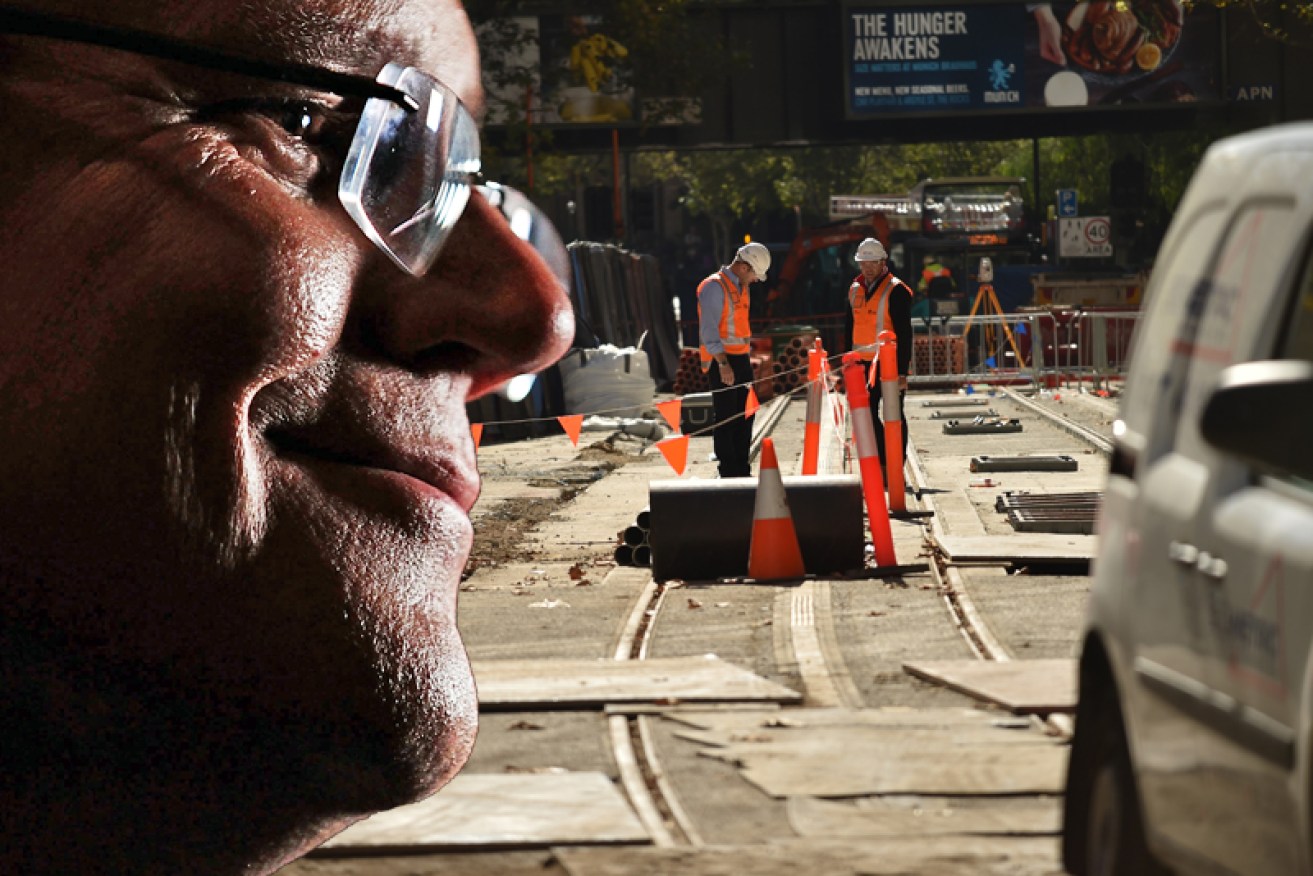Oops, Scott Morrison thinks the economy is in good shape


Photos: Getty
Australians doing it tough must be fed up with being told by the excitable Treasurer Scott Morrison that there are better times ahead.
Mr Morrison’s optimism would be encouraging if not for economic indicators rarely supporting his upbeat sloganeering.
As Shadow Treasurer Chris Bowen wryly observed: “The thing about the Treasurer saying ‘better days are ahead’ is that he can say it forever without actually having to deliver better days now.”
The Treasurer seems to be the only one who has failed to grasp that there is something seriously amiss with the Australian economy.
The latest flurry of economic data leaves no room for doubt.
June quarter GDP growth of 0.8 per cent took annualised economic growth to 1.8 per cent – the lowest rate of annual growth since 2009.
It says something about Australia’s anaemic economy – and this government’s idea of economic success – that Mr Morrison should declare the GDP data as “a strong set of figures”.
Wages growth of 1.2 per cent in the June quarter places annualised wages growth at just 1.9 per cent, the lowest in at least 20 years.
National accounts showed a rise of just 0.6 per cent in household disposable income over the past year.
A staggering household debt-to-income ratio of 190 per cent and sluggish wages growth may explain the seasonally adjusted 0.0 per cent movement in retail sales for July, following a rise of 0.2 per cent in June and a rise of 0.6 per cent in May.
Neither was there much good news on the trade front. Australia’s trade surplus narrowed unexpectedly to $460 million in July, down from $888 million in June.
Jobs data suggests that while more people are getting into work, with 240,000 jobs created over the past year, the jobs are lower paid on average.
And yet Mr Morrison insists “we are seeing more and more evidence of things improving” for households.
The Reserve Bank’s decision to keep the official cash rate on hold at the record low of 1.5 per cent was clear warning that “better days ahead” for struggling households are not in sight.
It’s worth noting that there has not been an official cash rate increase since November 2010.
The Australian economy has yet to fully recover from the 2007-08 global financial crisis. In the meantime, the post-GFC economy has been erratic, volatile and unpredictable.

Patience is the key for the RBA. Photo: Getty
Adding to the uncertainty and hardship, virtually every sector of the economy is undergoing structural upheaval as Australia, along with the rest of the world, transitions to the digital economy.
At the Reserve Bank of Australia board dinner held in Brisbane on Tuesday, Governor Philip Lowe referred to “positive developments” in the economy but cautioned “it will be some time before we are at what could be considered full employment in Australia”.
Dr Lowe explained that the board chose to “be patient” and not “overly engineer or fine-tune things”.
“In striking the appropriate balance in our policy setting we have paid close attention to trends in household borrowing given the already high levels of debt.”
Over the past four years, household borrowing has increased at an average rate of 6.5 per cent while household income has increased at an average rate of just 3.5 per cent, he said.
An area of particular concern for Dr Lowe is the slow growth in household incomes. Over the past four years, nominal average hourly earnings have grown at the slowest rate in “many decades”.
“This means that borrowers haven’t been able to rely on rising incomes to reduce the real value of the debt repayments in the way they used to,” he said.
It is striking that Dr Lowe’s carefully weighted assessment of the economy is so at odds with Mr Morrison’s bellicose posturing.
Australia may well have avoided a technical recession following the GFC, but that will be of little comfort to households that have been living in recessionary circumstances since.
The Turnbull government would do well to heed the Reserve Bank’s implicit warning: there are fundamental shifts in the Australian economy that require a nuanced and visionary response by government.
The challenge is every bit as seminal as the mammoth task faced by Paul Keating when he undertook the modernisation of Australia’s moribund economy in the 1980s.
If Scott Morrison is not the person for that job, Malcolm Turnbull should appoint someone who is.
Leo D’Angelo Fisher is a former associate editor and columnist with BRW and columnist for the Australian Financial Review. He was also a senior writer at The Bulletin magazine.








